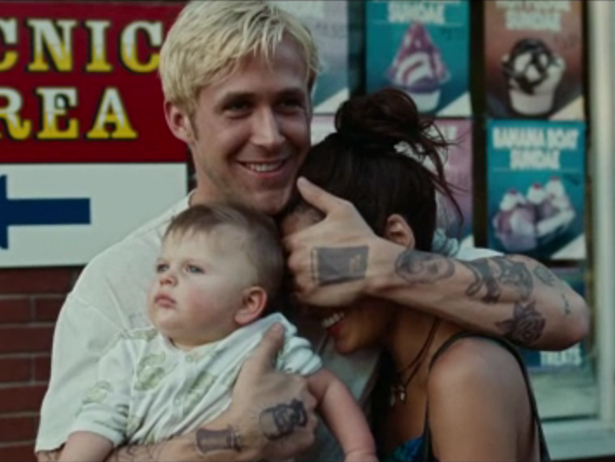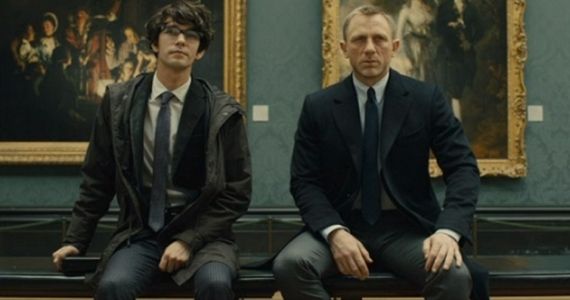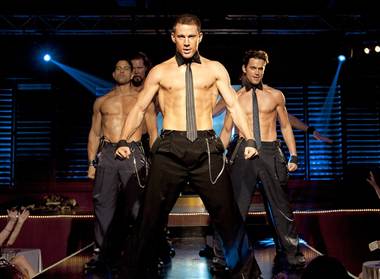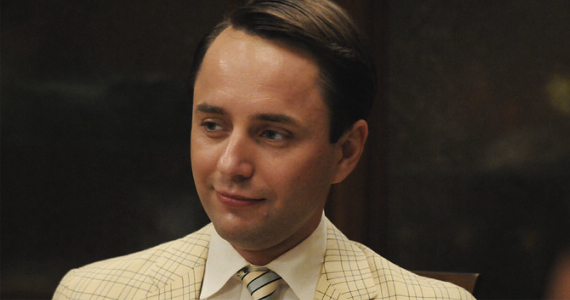
Just when we thought that sword-wielding, damsel-saving white knights had gone the way of Mitt Romney, here comes Ryan Gosling to prove us wrong. In The Place Beyond the Pines, director Derek Cianfrance reteams with Gosling for a dream-like short film featuring his kinetic, richly colored visual style—which happens to be followed by two hours of mundane family drama that’s only marginally less depressing than Blue Valentine. A note to all directors: do not cast Ryan Gosling and then kill him a third of the way through your film unless you want viewers to spend the rest of the film wondering why they paid $12.50 to not watch Ryan Gosling.
Clearly, I was fully on Team Gosling before the film began, but even I was a little disconcerted about the fact that he appeared to be playing the same character from Drive. I realize typecasting remains a common practice in Hollywood, but STUNT DRIVER WHO SIDELINES AS A THIEF IN ORDER TO PROTECT A WOMAN AND HER CHILD is a pretty specific type. Both Gosling incarnations—the driver and Luke—are at turns sweet and psychopathic. While you understand the leading ladies’ attraction—it’s Ryan Gosling after all—you also feel the need to warn them that this guy will probably kill you in your sleep—and then compose you a poem—written in your own blood. It’s all very confusing. But what truly connects these two men is their sincere belief that they are twenty-first century knights slaying twenty-first-century dragons for twenty-first century damsels. The damsels in question, though, have very little to say in the matter. Continue reading “Hey Girl, You Need a Hero?”








